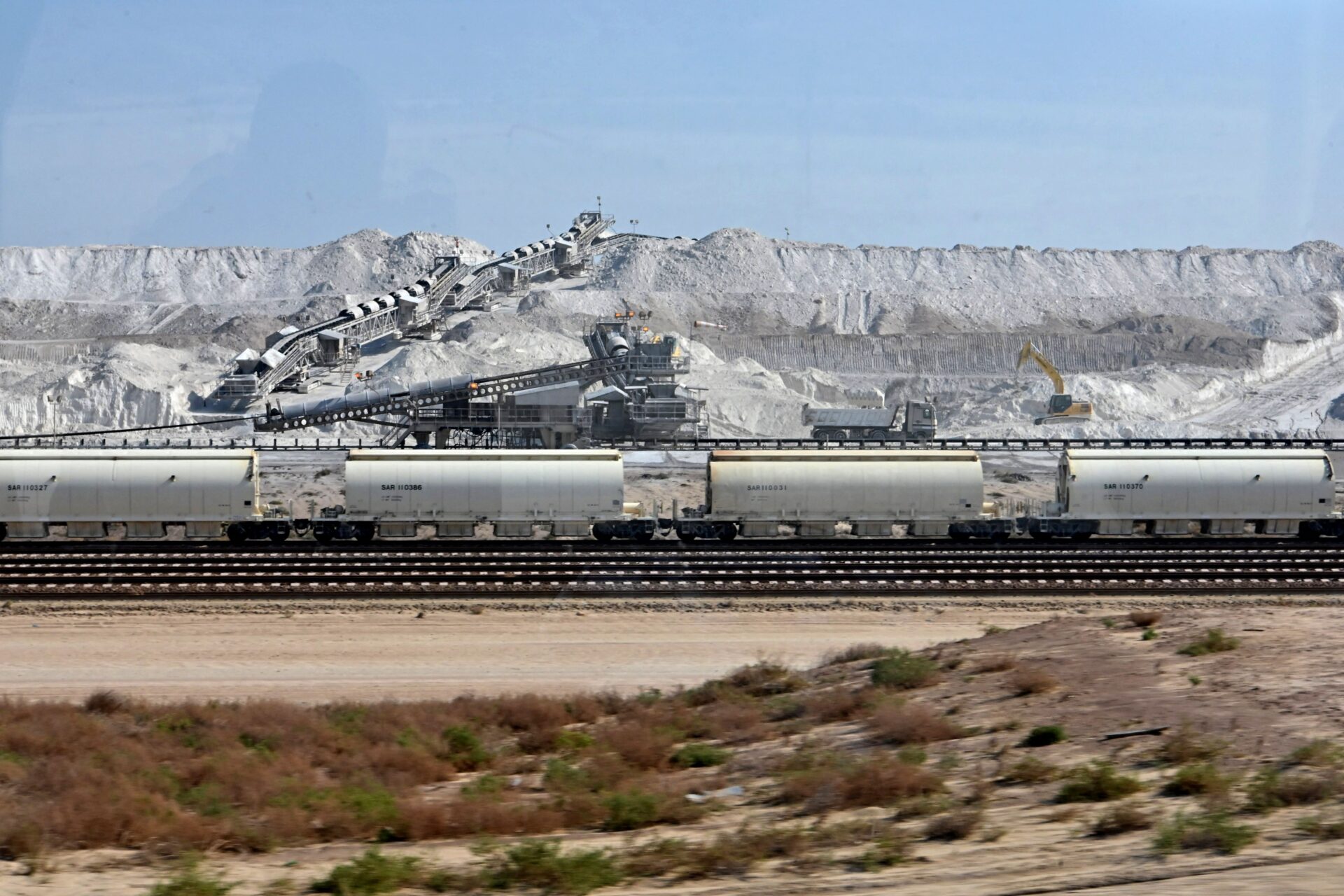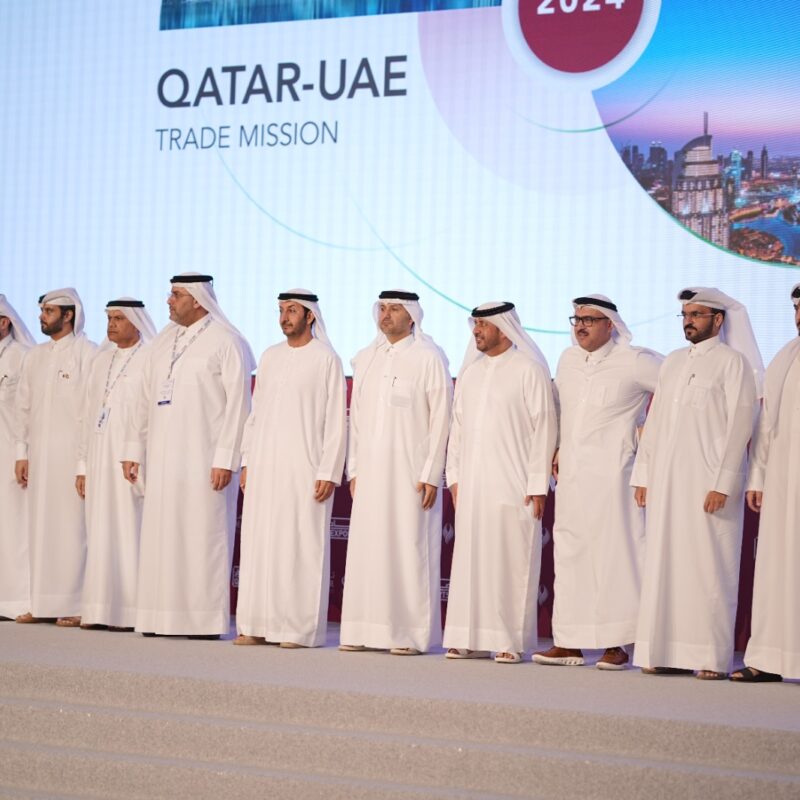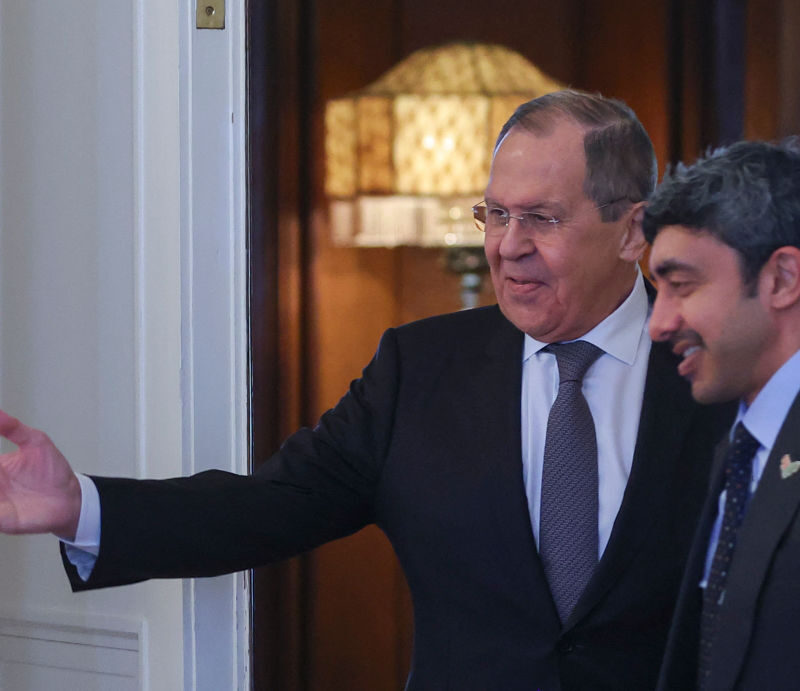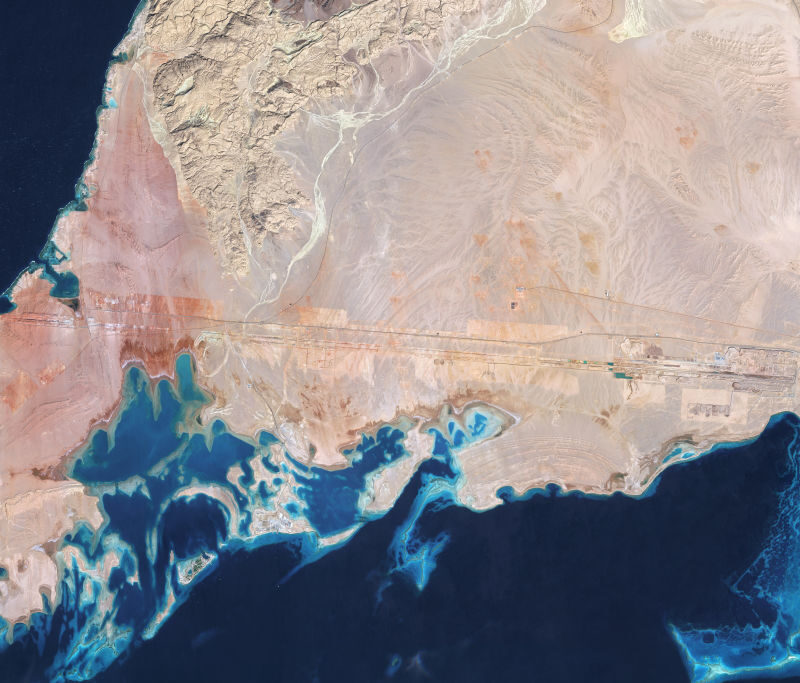
Saudi-backed Ma’aden’s CEO on the gold mine beneath the kingdom
The Circuit catches up with Bob Wilt, who came to Davos to flag ‘the third pillar of the Saudi economy’ – metals mining
DAVOS, Switzerland – Saudi Arabia is sitting on a gold mine. Also phosphate, bauxite, copper, zinc and nickel. Analysts have called the estimated value of its mineral resources – last put at $2.5 trillion – one of the most significant potential contributors to its economic transformation ambitions.
The Circuit caught up with Bob Wilt, who moved from California to Saudi Arabia two years ago to take up the helm of one of the world’s fastest growing mining operations, on the sidelines of the World Economic Forum Annual Meeting in Davos. This interview has been condensed and edited for length and clarity.
The Circuit: Saudi Arabia has a big presence in Davos this year. Why have you come to the World Economic Forum meeting, what are you looking to get out of this trip?
Bob Wilt: That’s right. We are just coming off the heels of the Future Minerals Forum, a third edition in Riyadh last week, where we brought at least 80 government delegations to Saudi Arabia to discuss the mineral potential of the kingdom. And we’re following up this week with meeting with partners and meeting with other mining companies, just to make sure the world knows that the third pillar of the Saudi economy is going to be metals and mining. We’re getting great responses. So, you know, there’s a lot of interest in the kingdom in general, in diversification of the economy, and part of that is obviously metals mining.
TC: A recent headline from The Economist said it well: Saudi Arabia wants to be the Saudi Arabia of minerals. Ma’aden has embarked on the largest exploration project in the world. Can you talk about the significance of what you’re looking for, and the size and scale?
BW: I joined the company [in February 2022] with the prospect that the mineral endowment of the kingdom was $1.3 trillion. And they subsequently announced last week that the potential is probably two and a half trillion dollars. And a lot of that is the result of the work that we’ve done in exploration over the last 18 months.
But as I’ve talked to most of the mining CEOs globally, last week and this week, I’ve yet to come across any major company that is spending as much or drilling as much as Ma’aden is. If you look at the mineral endowment of the kingdom, about 40% Is phosphate, which we’ve got a great handle on, and we’ve developed an industry around, so we’re very pleased with that. But then if you look at the rest of the endowment, it’s copper, it’s gold, it’s nickel, zinc. Rare earths are in there.
So we’re looking for all of the above. And we just had great luck. We’ve had great luck already with gold, we announced a pretty massive gold discovery towards the end of last year, adding another probably 10 million ounces in that discovery. So we know we’re gold-rich. And now we’re just looking to see what other transition minerals are available in the kingdom.
TC: Although it’s no stranger to drilling, to digging, this is a fairly steep scale-up for Saudi Arabia in a new industry. How much are you investing as a company into setting up to do what you’re doing?
BW: I think saying we’re new to the industry is, Ma’aden is 25 years old. We started as a small gold mining operation out of the government offices of energy and petroleum 25 years ago, but during the course of the 50s and 60s, the kingdom along with the U.S. Geological Survey had discovered phosphate and bauxite. So we developed an aluminum industry and a phosphate fertilizer industry in around 2009, 2010, 2011.
We’ve really been at this industrializing minerals for a decade or so. But yeah, that is fairly immature when you think about Rio Tinto celebrating its 150th anniversary this year. As far as how much we’re spending, what we’re developing, there’s a broad spectrum of where the spending is occurring. So we’ll probably spend 50 to 60 billion U.S. dollars in building out the infrastructure of the mining industry if this plays out the way we want it to by 2040. There’s a massive capital spend required in terms of building the mines and building the processing plants so that we think are potential in Saudi But there’s also the exploration. We’re spending on average about 120 to 130 million U.S. dollars annually on exploration. We just did an agreement with King Fahd University of Petroleum and Minerals. We partnered with them and donated 100 million SAR, about $27 million to develop a mining degree program there. We’re attacking this on all fronts: human capital, talent, capabilities, exploration and infrastructure build-out. It’s a massive undertaking.
TC: There seems to be more focus amid the energy transition to pay more attention to environmental impact as compared to the prior era of industrial mining. Is that naive to think this industry can change?
BW: I think that’s exactly right. If you think about some of the challenges we faced in the industry, part of its image, and we at Ma’aden don’t have legacy issues. So we’re not dealing with undoing mistakes of the past. We’re operating with a fairly clean slate. We’re able to take advantage of technology and cut the cycle times of exploration, from six weeks of processing data down to six days and things like that.
We do have the advantage of being the new kid on the block, if you will, with not having to fight legacy issues. But at the same time, we’re the victim of those issues in terms of talent and capabilities. You know, there’s like 17 people graduated in all of Australia last year with mining engineering degrees. There’s six universities in the UK that don’t allow mining companies to come and recruit on campus. Now, as a mining leader, I’m probably going to triple the size of my workforce in the next 10 or 15 years and I’m going to need talent, not only from Saudi Arabia, but from everywhere.
If you think about it, the energy transition is going to require six to nine times as many minerals over the next decade or so as we’ve got now. But there’s nobody to do the mining, there’s nobody to do the geology, nobody to do the exploration. It’s a huge issue and risk for the industry is how do we attract talent? And part of that is addressing the image of our forefathers that didn’t do such a great job.
TC: It seems too tidy to frame the narrative as Saudi Arabia emerging to support the energy transition, as the world’s second-biggest oil producer. But how significant of a role does Saudi Arabia plan to play in the global transition away from fossil fuels?
BW: Prince Abdulaziz [bin Salman], our Minister of Energy, spoke last week at the Future Minerals Forum and said that whether it’s fossil fuels or the energy solutions of the future, Saudi Arabia wants to lead the way. And whether we have the minerals in the ground in the kingdom to support that transition, or we become the processing hub. For the energy transition, Saudi Arabia will play a key role for sure. That’s very clear to me.



